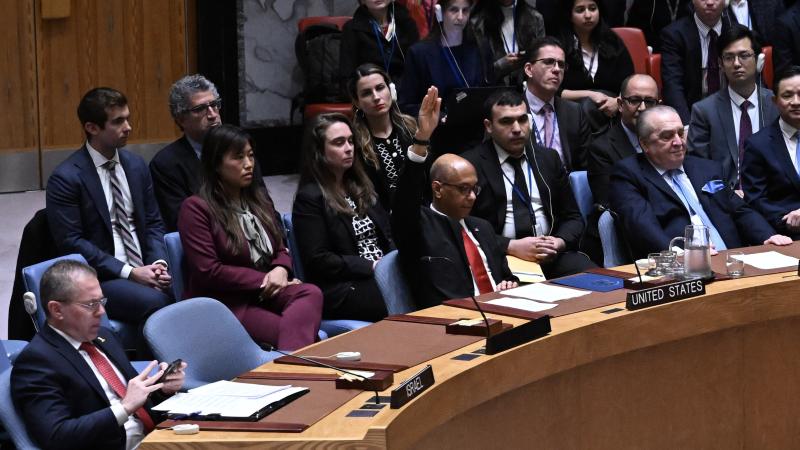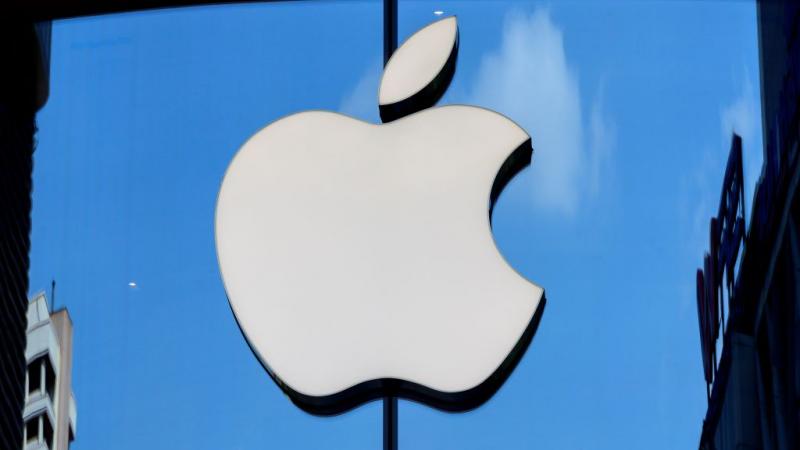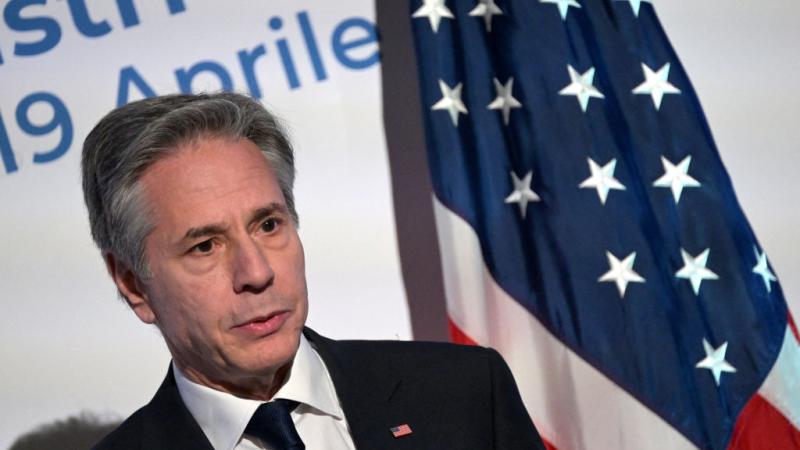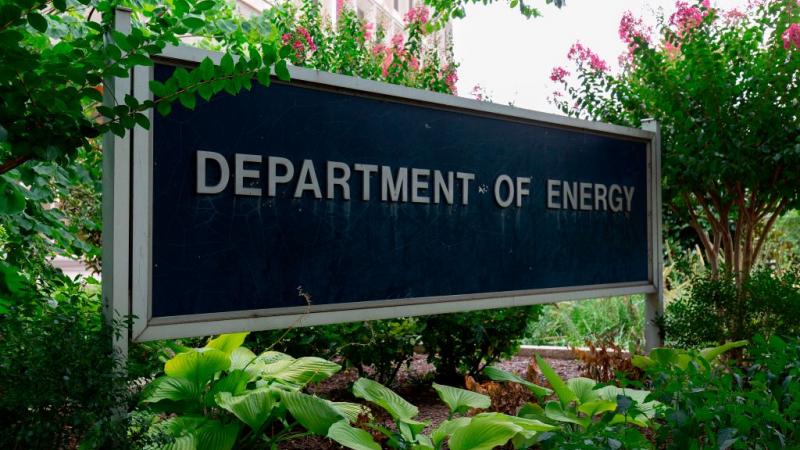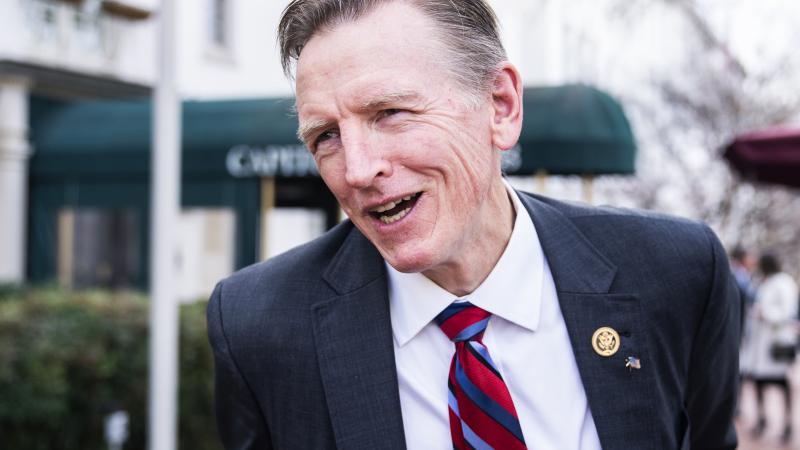Trial of alleged terrorist spotlights Iranian threat to U.S. homeland
U.S. intelligence community, law enforcement have long been concerned about Iran and its chief proxy Hezbollah attacking America
The trial of a New Jersey software engineer accused of working for a terrorist group is further exposing plots by Iran and its terror proxies to attack the American homeland — a threat that's long concerned the U.S. intelligence community and law enforcement but largely flown under the public's radar.
Alexei Saab, 45, appeared to be a law-abiding U.S. citizen but was secretly scoping out terror targets in major U.S. cities for Iran's chief proxy force, Hezbollah, federal prosecutors told jurors at the start of Saab's trial on Monday.
"He posed as a regular guy," said Assistant U.S. Attorney Sam Adelsberg. "In reality, he was a sleeper agent for Hezbollah ready to strike."
Hezbollah is a U.S.-designated terrorist organization based in Lebanon.
Adelsberg alleged the terror group dispatched Saab and other "spies" to the U.S. and other countries in the early 2000s, placing them to kill Americans in the event of an outbreak of hostilities between the U.S. and Iran.
From 2000 to 2005, Saab allegedly gathered intelligence on several landmarks in New York, Boston, and Washington, D.C., scouting them as potential targets for terrorist attacks. He took pictures, video, and looked for "soft spots" and where bombs could be planted to cause the most harm, according to Adelsberg.
Saab was arrested in 2019 after being questioned by FBI agents. The feds charged him with several counts, including providing material support to a foreign terrorist organization and unlawful procurement of citizenship to facilitate international terrorism.
Saab has pleaded not guilty. His lawyer, Marlon Kirton, said the Justice Department built much of its case from statements made by Saab to investigators that can't be considered reliable. Kirton also argued there's "no evidence as of today that Hezbollah has attacked people here in America."
However, Saab's case is hardly the first of U.S. authorities investigating potential terror plots by Iran and Hezbollah on U.S. soil.
"This is not a recent phenomenon," said Jason Brodsky, policy director of United Against Nuclear Iran. "This is a trend that's been going on for years."
Iran and Hezbollah have long maintained sleeper cells and sleeper agents in the U.S., waiting for Tehran's signal to strike.
One Hezbollah operative told the FBI during interviews in 2016 and 2017 that if the U.S. and Iran went to war "the U.S. sleeper cell would expect to be called upon to act." That operative, Ali Mohamed Kourani, and another Hezbollah member were carrying out preoperational surveillance for potential Hezbollah attacks in the U.S. and Panama, according to federal prosecutors.
An FBI agent who interviewed Kourani later recalled him stating: "I am a member of 910, also known as Islamic Jihad or the Black Ops of Hezbollah. The unit is Iranian-controlled."
Saab is also accused of working for Hezbollah's Islamic Jihad Organization, or Unit 910.
"Iran and Hezbollah have had a significant presence in the Western Hemisphere for decades, building networks of influence through friendly governments such as Cuba, Venezuela, and Nicaragua and by relying on their diaspora," said Emanuele Ottolenghi, a senior fellow at the Foundation for Defense of Democracies. "They've been trying to do that in the U.S. as well."
Ottolenghi explained that Hezbollah has been involved in massive illicit funding schemes, using the U.S. as part of a global money laundering and black market network. But the group has also dispatched trained agents, wanting them to naturalize and become U.S. citizens to leverage their presence, knowledge, and connections for potential violence.
Beyond illicit financing, these operatives are also sleeper agents, ready to engage in terrorism on U.S. soil on behalf of Iran if called upon.
"They want to have people in the U.S. to build a terror infrastructure, laying the groundwork for future attacks against Americans," said Ottolenghi.
The New York City Police Department "always" placed the "Iran/Lebanese Hezbollah threat" at the top of our threat matrix," according to Mitchell Silber, the department's former director of intelligence analysis.
Hezbollah, which answers to and reportedly receives about $700 million a year from Iran, is present in at least 15 U.S. cities and is "the most technically capable terrorist group in the world," according to experts. Before 9/11, it killed more Americans than any other terrorist group.
The U.S. intelligence community assessed in its 2022 Annual Threat Assessment that Iran "will threaten U.S. persons directly and via proxy attacks," "remains committed to developing networks inside the United States," and "has previously attempted to conduct lethal operations in the United States."
In 2011, for example, U.S. authorities thwarted an Iranian plot to assassinate the then-Saudi ambassador to the U.S. by blowing up Cafe Milano, a restaurant in Washington, D.C. often frequented by American government officials.
Saab's trial opened one day before Secretary of State Antony Blinken told lawmakers in congressional testimony that Iran's Islamic Revolutionary Guard Corps (IRGC) poses an "ongoing threat" to current and former U.S. officials.
"Let me say generically, there is an ongoing threat against American officials both present and past," said Blinken.
The State Department is reportedly paying some $2 million a month to provide 24-hour security to both former Secretary of State Mike Pompeo and former Trump administration Iran envoy Brian Hook over "serious and credible threats" to their lives from Iran.
A State Department spokesperson wouldn't confirm the $2 million figure, declining to discuss specifics of protective operations. However, the spokesperson explained that Congress has authorized up to $30 million to be made available to provide protective services to former or retired senior State Department officials who face "a serious and credible threat from a foreign power or the agent of a foreign power arising from duties performed while employed by" the department.
"The State Department takes all potential threats seriously and will continue working with appropriate government agencies to protect and defend the homeland and its citizens," the spokesperson said. "This includes those serving the United States now and those who formerly served. Should Iran attack any of our nationals it will face severe consequences."
Senior Iranian officials have also threatened other former and current U.S. officials, including John Bolton, who served as former President Trump's national security adviser in the White House.
Iran hasn't just targeted government officials, however.
Last July, the Justice Department announced charges against Iranian intelligence agents for plotting to kidnap an American citizen, journalist Masih Alinejad, in the U.S. and take her by boat to Venezuela before forcibly returning her to Iran, where she was born.
"It sounds like a crazy plot, but it's very frighteningly true," said Brodsky, who explained such attempted assassinations and kidnappings are meant to silence critics of the Iranian regime and intimidate others.
These plots haven't stopped the Biden administration from trying to revive the 2015 nuclear deal, which places temporary curbs on Iran's nuclear program in exchange for lifting tens of billions of dollars worth of sanctions on the regime.
"The Biden administration has been sincere and steadfast in pursuing a path of meaningful diplomacy to achieve a mutual return to compliance with the [nuclear deal] and to address our full range of concerns with Iran," the State Department spokesperson told Just the News. "A mutual return to compliance is in America's national interest. It is the best available option to restrict Iran's nuclear program and provide a platform to address Iran's destabilizing conduct."
Brodsky disagreed that the administration is attempting to address any non-nuclear threats posed by Iran, such as sponsoring terrorism.
"It showcases the vulnerability and weakness in U.S. policy toward Iran," said Brodsky, describing Washington as narrowly focusing on the nuclear deal and ignoring all other malign Iranian behavior. The Biden administration has "yet to develop a comprehensive policy to address both nuclear and non-nuclear issues."

